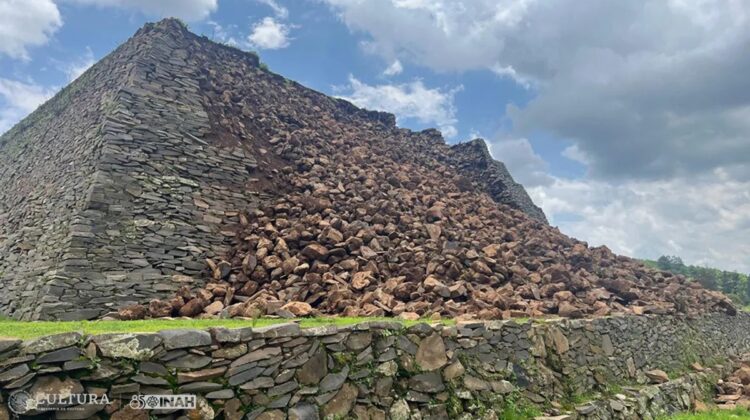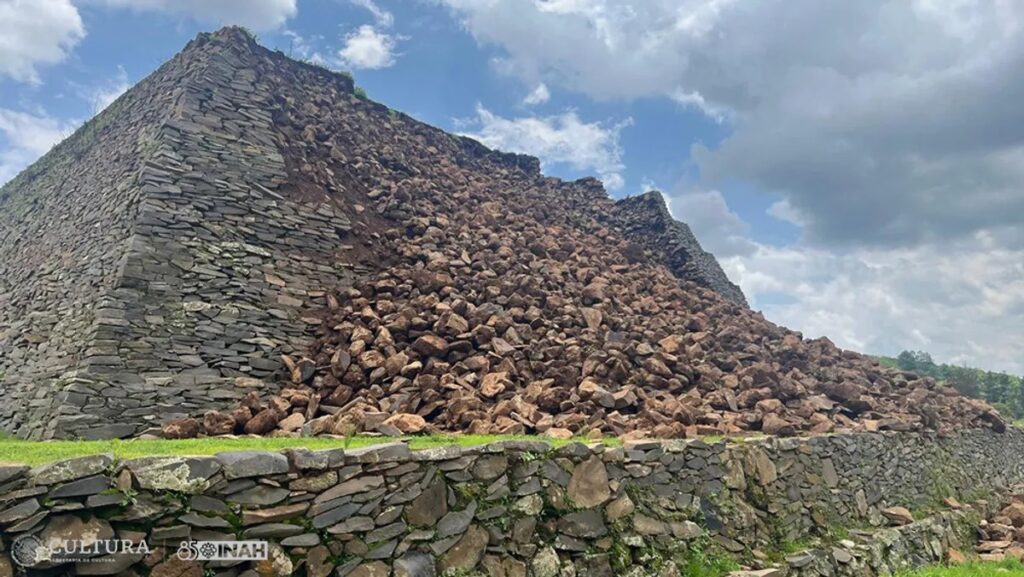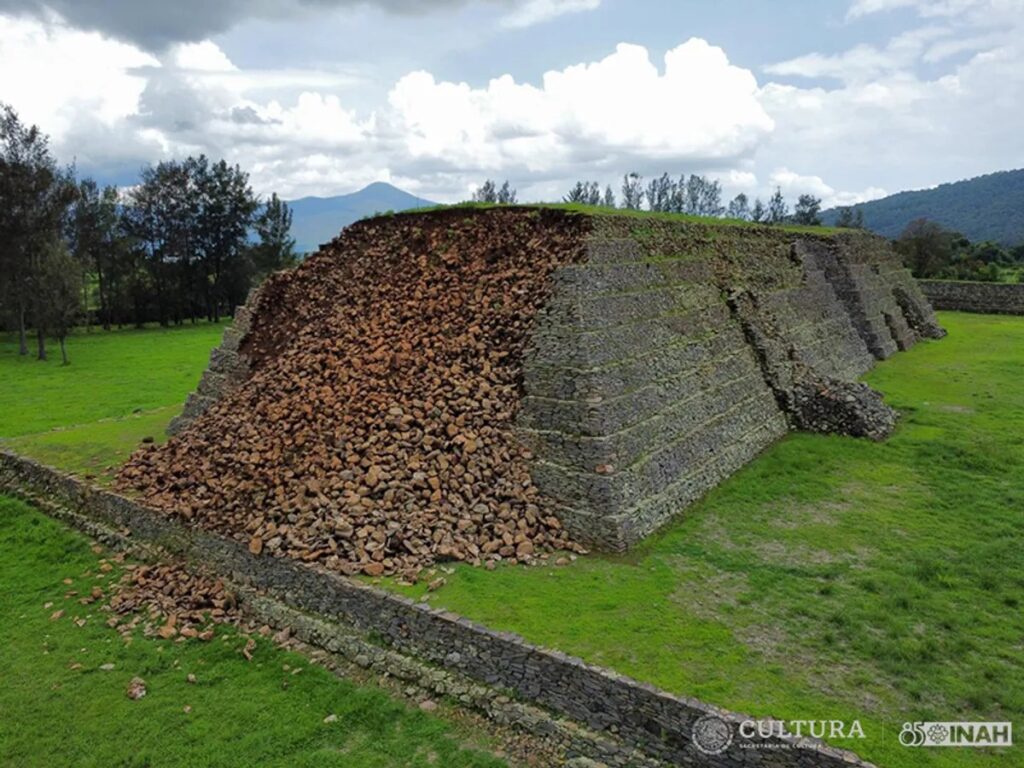
Which one of you annoyed the gods?
A deluge of heavy rain near Lake Pátzcuaro has triggered the collapse of an ancient pyramid in Mexico, just days after the iconic “Double Arch” in Utah’s Glen Canyon National Recreation Area came crashing down into Lake Powell. Both incidents, attributed by some to an increasingly wild global climate, could also signal impending trouble.
The structure, located in the Ihuatzio Archaeological Zone in Michoacán, had recently been subjected to extreme temperatures, causing cracks that allowed water to seep into its interior. On the night of July 29, it was then hit by a torrential downpour, leading to the collapse of the central part of its southern facade, according to Mexico’s National Institute of Anthropology and History (INAH).
Experts from INAH quickly mobilized to address the situation.

Image credit: Ramiro Aguayo/INAH
“Beginning in the early hours of July 30, personnel moved to the heritage site to assess the damage caused,” INAH stated. They confirmed that at least six stepped sections of the south base of the pre-Hispanic monument were damaged, affecting both the exterior walls and the interior core.
At its height, Ihuatzio spanned approximately 150 hectares and housed at least 84 structures, with seven currently on display at the archaeological park. The settlement, first occupied in 900 CE by Nahuatl-speaking groups, reached its peak between 1200 and 1521 CE as the first seat of the Purépecha empire.
This civilization, a major rival to the Aztec Empire, engaged in numerous battles with the Aztecs but remained one of the few Indigenous groups that the Aztecs failed to conquer.

Image credit: Ramiro Aguayo/INAH
The pyramidal structures at Ihuatzio were sacred spaces, likely used for spiritual rituals and ceremonies. They also held political significance, serving as powerful symbols of the culture’s power and authority.
Today, Purépecha people still inhabit parts of Michoacán state in western Mexico and have commented that the structure’s fall might be seen as a sign of impending doom.
Tariakuiri Alvarez, referring to the builders of the pyramid as ancestors in a Facebook post, described how this event would have been considered a bad omen, signaling “that some event is approaching.”
“Before the arrival of the conquistadores, according to historical accounts, something similar happened to the Purhé [Purépecha] worldview of that time because the gods Nana Kuerhaépiri and K’eri Kurikweri were displeased,” the translated post reads.
It’s a good thing we’re not superstitious…

Leave a Reply